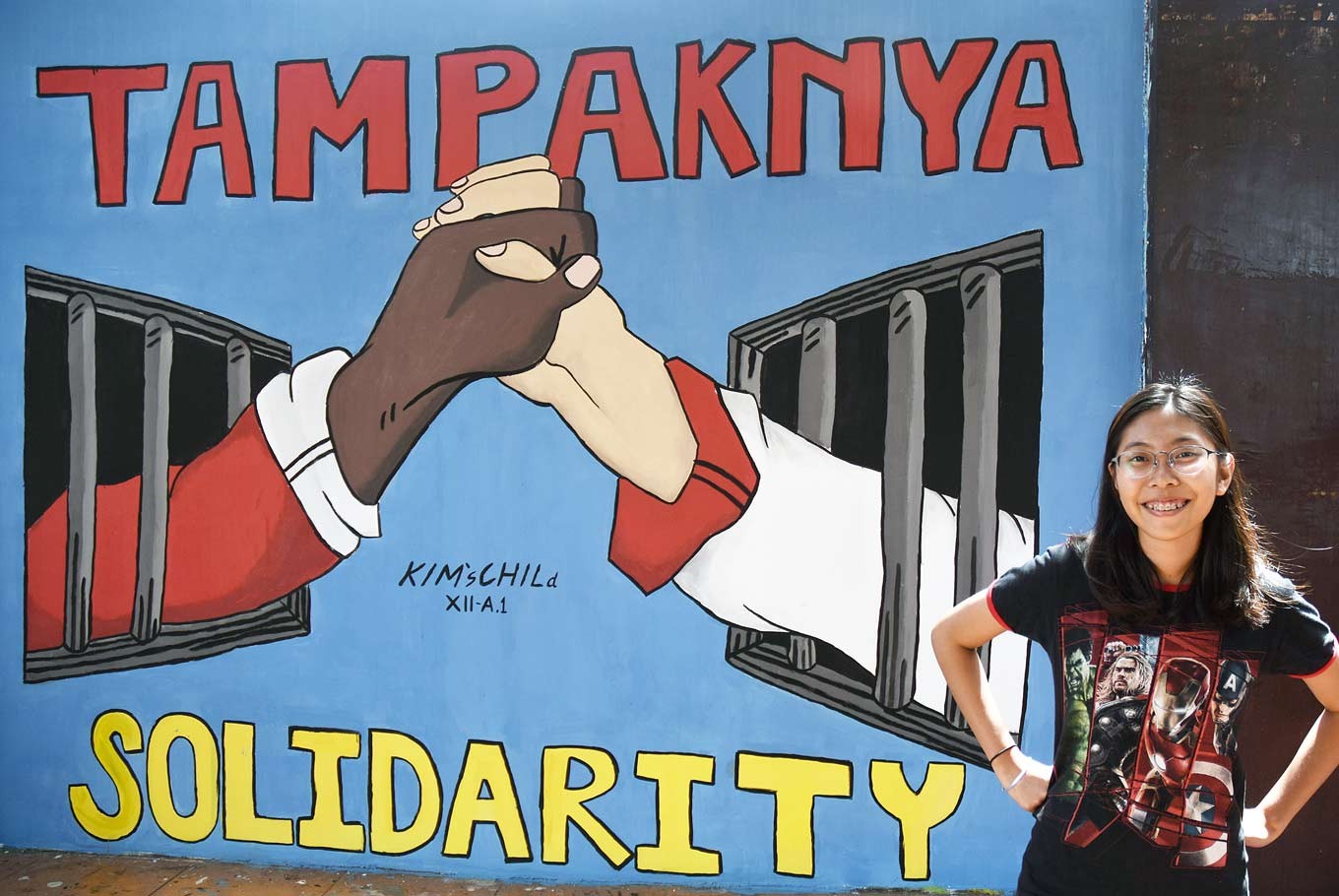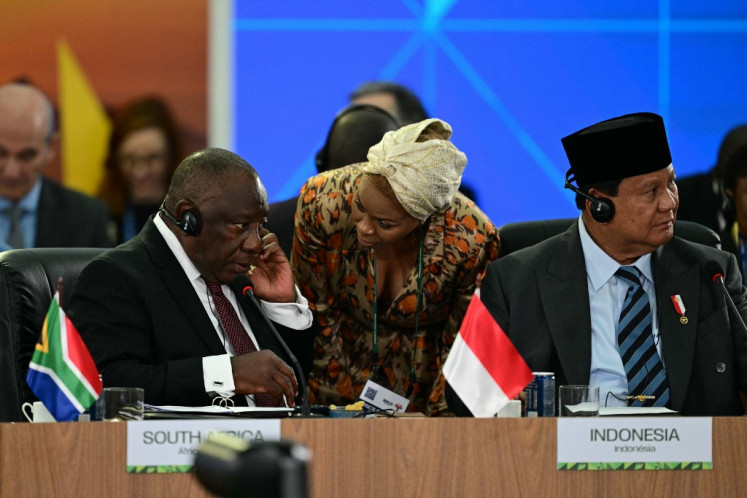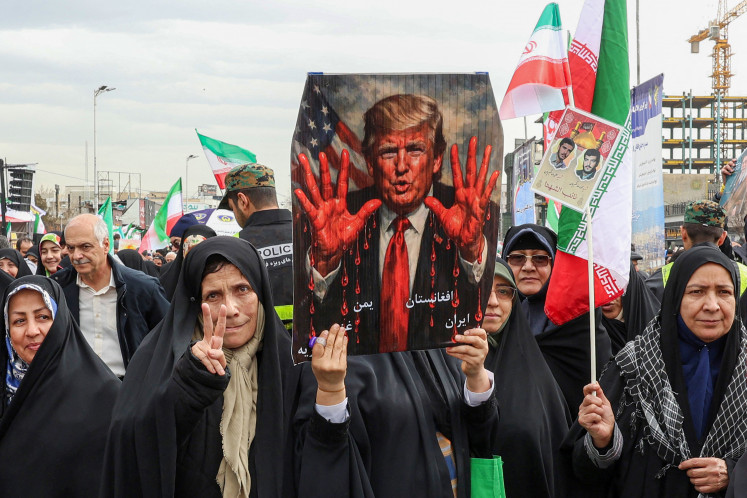Popular Reads
Top Results
Can't find what you're looking for?
View all search resultsPopular Reads
Top Results
Can't find what you're looking for?
View all search resultsCelebrating independence, recounting common struggle
The inclusive feeling of nationalism is what has kept Indonesia going.
Change text size
Gift Premium Articles
to Anyone
D
uring the month of August, Indonesians will again engage in an exhibition of nationalism. From large red-and-white flags hoisted high in the sky to small red-and-white trinkets decorating car dashboards, there is no shortage in ways to express nationalism. Neighborhoods will organize Independence Day events, from flag hoisting ceremonies to the more playful competitions of racing up slippery poles (panjat pinang).
Growing up, I have always anticipated these events, especially the kerupuk (rice cracker) eating contest. These festivities serve more than simply getting the neighborhood together; they are part and parcel of our shared national identity.
Indonesian nationalism came about as a response to colonialism. But cultivating that nationalism was no easy feat.
Before the early 1900s, there was no national consciousness. Local principalities and sultanates led the rebellion against colonialism; however, they were often defeated due to the colonists’ superior technology and cunning. It was only in 1908 when the intelligentsia, educated in Europe, began to build national consciousness. In 1928, an Indonesian national identity began to take form.
After three conferences, Indonesian youth came together in Jakarta to pledge their allegiance to a new “imagined community”: an Indonesian motherland, an Indonesian nation, and an Indonesian language. The Indonesian nation finally awakened. No longer were they segregated by their ethnic, religious, or cultural identities; they were all Indonesians.
This inclusive feeling of nationalism is what has kept Indonesia going. The writer Elisabeth Pisani dubbed Indonesia an “improbable nation.” Colin Brown called Indonesia an “unlikely nation.”
These monikers attest to the strong cohesive spirit of Indonesian nationalism. Despite all odds, the people of Indonesia, a country of over 300 ethnic groups, managed to unite under a single national consciousness. If there is one thing Indonesians ought to be proud of, let this be it.
Our national values — inclusiveness, unity, and tolerance — are evidently being eroded slowly with the emergence of an exclusive brand of cultural nationalism. Instead of equality among citizens, proponents of cultural nationalism preach of nationalism that is diametrically opposed to the inclusive brand of nationalism our founding fathers built this country on.
They believe the nation ought to be built in their image, regardless of the other groups that took part in the nation-building process. To push their ideals, they do not care if they have to infringe upon the liberties of
other groups.
The recent spat over a statue of Guan Yu, a Chinese deity, in Tuban, East Java reminds us there are people out there who will go to great lengths to satisfy their skewed interpretation of “nationalism,” even if it means trampling on the freedom of other citizens. An unnamed protestor said the statue was “a symbol of treason to this nation,” alluding to alleged Chinese influences in Indonesian politics, and a form of idolatry.
Yet that statue had been there for years and nobody has had a problem with it — until someone decided that a work of art, situated within a religious complex, was suddenly an affront to their exclusive “national” values.
The statue is now covered in a white sheet, a reminder to the nation that though all citizens are equal, some are more equal than others.
If Sukarno — nay, any nationalist who fought during the struggle for independence — were to witness these events, they would weep. Indonesia was built by the blood and sweat of many people of numerous identities, who united under one cause; not by the sole endeavours of one particular group.
To see one group pushing for exclusive recognition would make their blood boil, as it is an insult to the great spirit of nationalism that liberated us from colonialism.
As Indonesia celebrates its 72nd anniversary, we ought not to revel in only ceremonial celebrations of our independence. Flags and other ornaments are important indicators of a nation and do much to bolster our sense of nationalism.
But we need take a good long look at the meaning attached to those attributes. What use are our flags if our values crumble?
It is in our hands to protect the values on which the nation was built. Founding father Mohammad Hatta once said, “The rise and fall of this country depends on its own people. Without unity and care, Indonesia will just be another name amongst the chain of islands on the map.”
In this Independence Month, we should stand strong in facing threats to our civic nationalism and to not let exclusive interpretations of nationalism usurp our inclusive values. Sukarno was right when he said, “Never forget history.”
Our collective remembrance is an ideal bulwark against threats to our national identity. We need to revisit our history to appreciate the shared struggle of all Indonesians regardless of race, ethnicity, or religious affiliation in building this nation.
Lastly, we need to continue lending our support to groups facing persecution. If there is one national value that we sorely need to reinvigorate during Indonesia’s 72nd birthday, it is the spirit of gotong royong (working together). The plight of persecuted groups are of our concern as well, for they too are our fellow Indonesians.
Here’s to 72 years of independence! Merdeka!
***
The writer recently finished his MSc in Strategic Studies from S. Rajaratnam School of International Studies, Singapore. He has conducted research on Indonesia’s defense and security policy, maritime security, and civil-military relations.
---------------
We are looking for information, opinions, and in-depth analysis from experts or scholars in a variety of fields. We choose articles based on facts or opinions about general news, as well as quality analysis and commentary about Indonesia or international events. Send your piece to academia@jakpost.com.










